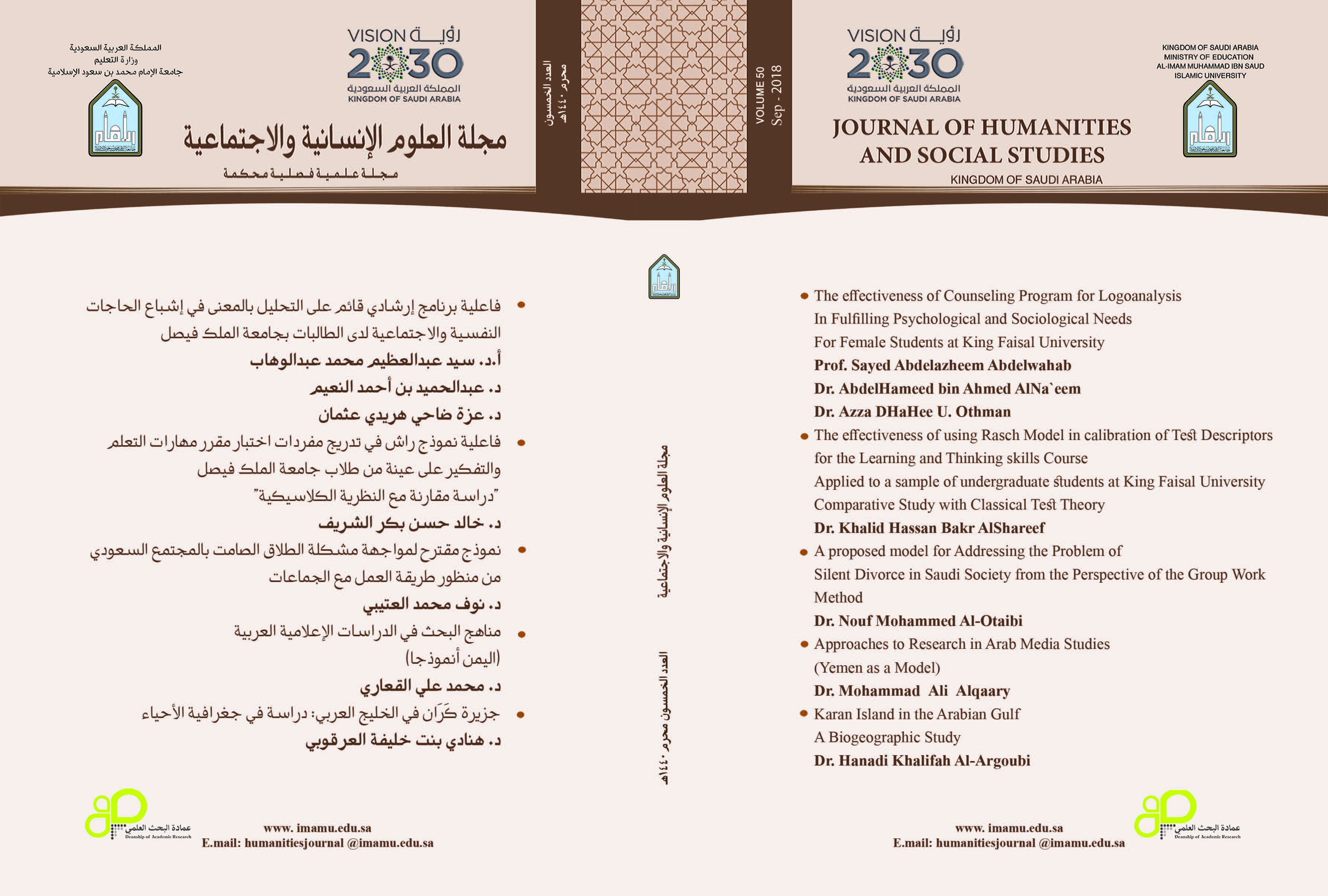A proposed model for Addressing the Problem of Silent Divorce in Saudi Society from the Perspective of the Group Work Method
Abstract
Silent divorce is one of the most difficult forms of divorce, because it does not give the women or the man the opportunity to start a new life or to carry on with their marital lives. Many couples find it difficult to acknowledge this problem, and try to maintain a decent appearance in society out of fear for children in the event of complete divorce, and out of apprehension of being branded as a “divorcee”. Based on the above, and due to the importance of working in the field of the family as one of the fields of social service in Saudi society, the current research paper seeks to answer a number of questions stated below:
- What are the manifestations and symptoms of silent divorce?
- What are the causes of silent divorce in the Saudi family?
- What is the role of the couple to avoid silent divorce?
- What are the couple's attitudes toward professional assistance offered to them?
In light of the research results, the researcher offers the following recommendations:
Preparing awareness leaflets and disseminating them to social media outlets, including a list of family counseling centers that can provide phone consultations to couples.
The use of clerics within the family counseling centers to inform the couple of the importance of adhering to the principles of Islam and the importance of satisfaction with the way God created them and adhere to good customs and traditions.
Preparation of awareness programs that will educate the couple in:
The need to preserve the secrets of married life and not to consult non-qualified Personnel.
The risks caused by silent divorce.
Avoiding nervousness and shouting, and repeating some words such as: (You always so, you do not recognize my existence), or similar sentences that are suitable for starting a quarrel, not dialogue.
Not to carry on dealing as competing peers, and to learn to accept differences.
Training in the skills of dealing with spouses, such as time management, choosing the right time for discussing problems, not having relatives interfering in family matters, dialogue skills and pursuing useful hobbies such as reading.




